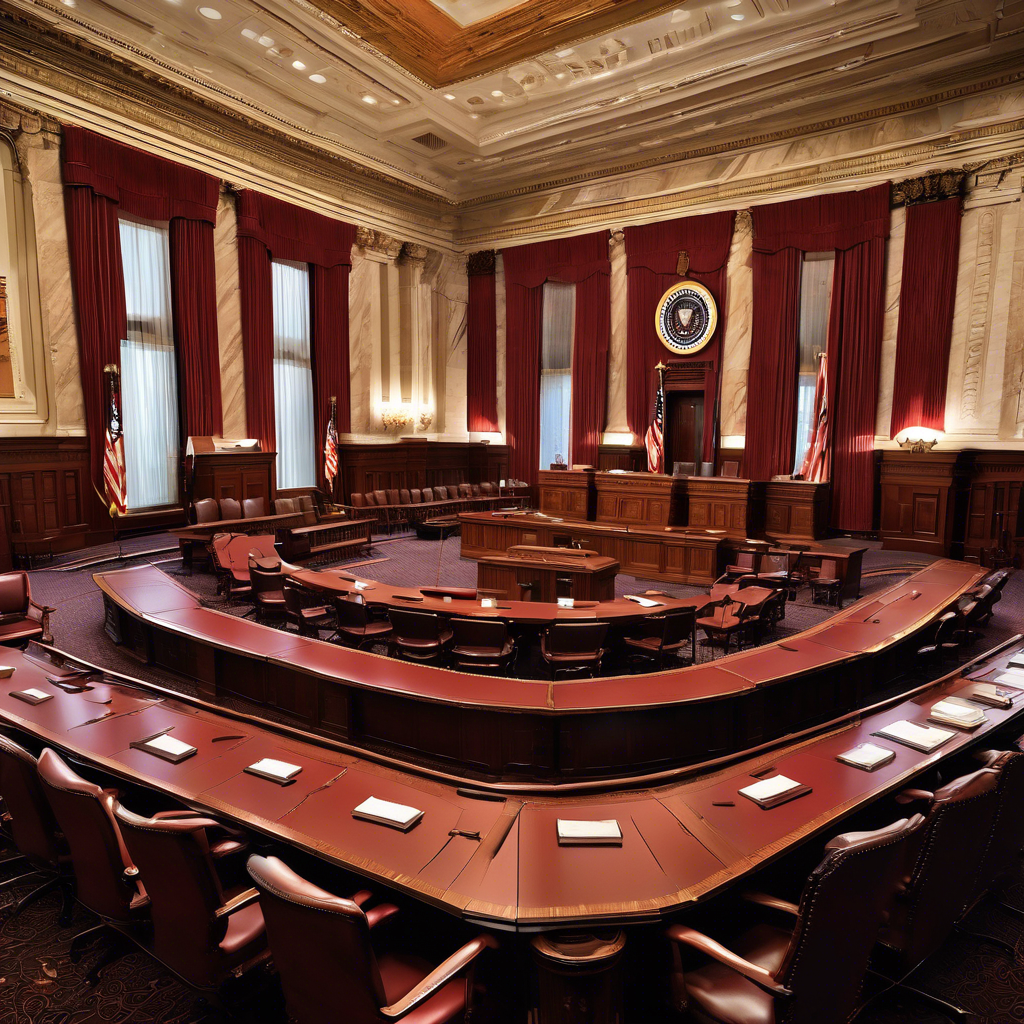U.S. Senate Strikes Down AI Regulation Moratorium Upholding State Authority in 2025

Brief news summary
On July 1, 2025, the U.S. Senate overwhelmingly voted 99-1 to remove a contentious provision from President Trump’s legislative package that would have imposed a ten-year nationwide moratorium on state AI regulations by linking federal broadband and AI funding to compliance. The provision aimed to create uniform federal AI oversight and prevent a patchwork of state rules, initially gaining support from some tech leaders and Senator Ted Cruz. However, strong bipartisan opposition arose from state officials and advocacy groups defending states’ rights, especially to protect vulnerable populations like children and creative professionals. Senators Marsha Blackburn and Maria Cantwell spearheaded the repeal effort, stressing the critical role of states in AI policymaking. Despite Cruz’s attempts to find compromise, concerns over unregulated AI risks and respect for state authority prevailed. Organizations like Common Sense Media applauded the preservation of state protections amid the lack of comprehensive federal AI legislation. The revised package maintains federal AI funding and support while affirming states’ regulatory roles, marking a significant development in U.S. AI governance. This layered approach balances fostering innovation with responsible oversight, allowing states to tailor policies as experiments addressing ethical, legal, and social AI challenges as federal laws continue to evolve.On July 1, 2025, the U. S. Senate overwhelmingly voted 99 to 1 to remove a controversial provision from President Donald Trump's legislative package that sought a nationwide moratorium on state-level AI regulation. This provision aimed to block states from enacting their own AI rules for up to ten years by tying access to federal broadband and AI infrastructure funding to compliance. Initially part of a broader effort to establish federal leadership in AI, the measure had backing from some tech leaders and Senator Ted Cruz, who argued that varying state regulations might hinder innovation and weaken U. S. competitiveness against global AI rivals. However, bipartisan opposition quickly emerged from state officials and advocacy groups worried about surrendering state authority over AI governance. Many urged the Senate to support states’ proactive AI regulations, especially regarding protections for vulnerable groups like children and creative professionals. Senators Marsha Blackburn and Maria Cantwell led moves to remove the contentious language, emphasizing the vital role states play in crafting policies responsive to their communities’ needs. During debate, Senator Cruz proposed compromise amendments to ease resistance and preserve parts of the moratorium, including exemptions for protecting children and upholding artists’ rights under Tennessee’s ELVIS Act, which covers digital copyrights and creative rights. Despite these efforts, Cruz’s amendments failed to change the Senate’s strong opposition to limiting state decision-making. The final vote showed near-unanimous rejection of the moratorium, with only Senator Thom Tillis dissenting. This result highlighted the Senate’s support for states’ rights in regulating emerging AI technologies and mirrored growing public concern about risks from unregulated AI. The children’s advocacy group Common Sense Media praised the decision, noting the importance of state authority to safeguard youth amid the lack of comprehensive federal AI laws.
Advocates stress that domestic AI governance must be flexible to address issues like data privacy, algorithmic bias, misinformation, and exploitation of creative content. This Senate action marks a key moment in federal versus state roles in AI regulation. With AI advancing rapidly, many lawmakers and stakeholders argue a uniform federal approach may be inadequate or too restrictive. Allowing states to serve as policy innovation labs enables tailored, timely responses to AI’s ethical, legal, and social challenges. Following the vote, President Trump’s legislative package was revised accordingly. While reaffirming commitment to AI innovation and U. S. leadership, the administration also acknowledged state authority in AI oversight—balancing economic competitiveness with responsible governance. Observers note that removing the moratorium could result in a patchwork of AI regulations across states, posing challenges for businesses operating nationally. Nevertheless, many welcome this diversity as necessary experimentation for effective policy. Several states have already enacted or proposed laws on algorithmic accountability, transparency, and child online safety. In summary, the Senate’s near-unanimous decision to strike the AI regulation moratorium signifies broad recognition of state leadership’s importance in technology governance. It illustrates bipartisan consensus on the need for thoughtful oversight to manage AI’s risks, especially as federal legislation remains nascent. The debate underscores AI’s profound societal impact and the urgent need for collaborative, multi-level governance going forward.
Watch video about
U.S. Senate Strikes Down AI Regulation Moratorium Upholding State Authority in 2025
Try our premium solution and start getting clients — at no cost to you

I'm your Content Creator.
Let’s make a post or video and publish it on any social media — ready?
Hot news

“AI SMM”, new training from Hallakate – Learn how…
In an era where technology is transforming how we create content and manage social networks, Hallakate introduces new training tailored for this new age: AI SMM.

AI Training GPU Cluster Sales Market Size | CAGR …
Report Overview The Global AI Training GPU Cluster Sales Market is projected to reach approximately USD 87

Multimodal AI Market 2025-2032: Growth Overview, …
Multimodal AI Market Overview Coherent Market Insights (CMI) has published a comprehensive research report on the Global Multimodal AI Market, projecting trends, growth dynamics, and forecasts through 2032

The Future of SEO: How AI is Shaping Search Engin…
Artificial intelligence (AI) is dramatically reshaping search engine algorithms, fundamentally changing the way information is indexed, evaluated, and delivered to users.

AI Video Conferencing Platforms Gain Popularity A…
In recent years, remote work has transformed dramatically, largely due to technological advancements—particularly the rise of AI-enhanced video conferencing platforms.

AI Video Content Moderation Tools Combat Online H…
Social media platforms are increasingly employing artificial intelligence (AI) to improve their moderation of video content, addressing the surge of videos as a dominant form of online communication.

US revisits its export curbs on AI chips
POLICY REVERSAL: After years of tightening restrictions, the decision to permit sales of Nvidia’s H200 chips to China has sparked objections from some Republicans.
AI Company
Launch your AI-powered team to automate Marketing, Sales & Growth

and get clients on autopilot — from social media and search engines. No ads needed
Begin getting your first leads today








